
In the hustle and bustle of raising children, it’s essential to pause and consider their mental wellbeing. Just as we care for their physical health, we must also consider their mental and emotional development.
Childcare experts at Busy Bees have been supporting parents with children’s mental health for over 40 years. Here we’ll explore some practical insights and strategies to help you navigate ways of supporting your child’s mental health.
From recognising signs of emotional wellbeing to implementing effective support mechanisms, our goal is to help families by empowering them with valuable knowledge.
Understanding children’s mental health and emotions
Mastering the skill of regulating emotions can pose challenges for children. Every day they are navigating a whole host of new experiences and situations, and learning to respond and interpret these can be overwhelming. In many cases, it can lead to emotional reactions that they haven’t yet learned to understand.
‘Be Calm’ activities are designed for you to use with your child to support them in learning how to manage strong feelings and emotions. What is most important for children to understand is that their voice matters and with this, any emotions they are feeling are something you can support them with.
‘Be calm’ techniques
Be calm and breathe
These experiences focus on breathing, using breathwork and imagination to reduce feelings of upset, worry or anxiety.
One approach is the ‘Beach Breathing’ technique. Ask your child to close their eyes and imagine they are sitting on a warm, sandy beach. While doing so, invite them to breathe deeply through their nose and then out through their mouth, imagining that their breath is the waves rolling onto the shore. You can support what they are imagining by describing what you can see and hear on your own beach.
Be calm and active
These experiences focus on movement, using parts of their body and experiences to re-direct emotions.
An approach we suggest is a clap it out or stamp it out technique. If they’re feeling strong emotions, encourage your child to clap as fast as they can for 10 seconds. When the time is up, put your hands out in front of you and ask them if they can feel their fingers tingling. Or you could ask your child to stamp their feet as quickly as they can for 10 seconds and ask them what their feet feel like when they’ve stopped.
Be calm and positive
These experiences focus on supporting children’s self-esteem.
My weather report is a method to encourage children to think about how they are feeling today and liken it to the weather, for example, they might be feeling sunny, stormy, calm, or bright.
This technique allows you to explain that even though we can’t change the weather, just as we can’t always change how we are feeling, we can make sure we notice it and understand why, which is important. Sharing how we are feeling with others can make us feel better if we are unhappy or worried.
We have many other methods or experiences you can use with your child to understand their emotional wellbeing and to help educate them about how to manage their emotions.
Other ways to support children’s mental health
As parents, there are many ways you can support your child’s mental health. NHS guidance provides some other examples of techniques to help, which support the notion that we feel strongly about – that every voice matters.
These include:
• Listening to their feelings.
• Staying involved in their interests.
• Taking what they say seriously.
• Supporting them through difficulties.
• Encouraging their interests.
• Building positive routines.
For further information please visit www.busybeeschildcare.co.uk/blog/mental-health


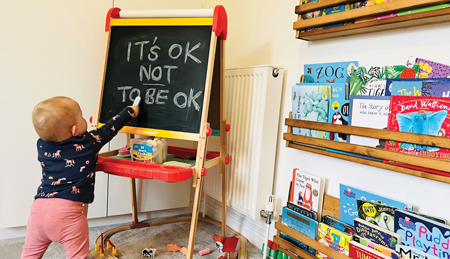
 Mining for diamonds
Mining for diamonds

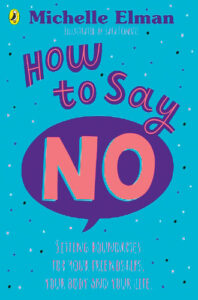 isten when their siblings say no to them entering their room. Emphasising that we also want to respect other people’s boundaries and giving them the language around boundaries is also really helpful. A boundary might not always sound like the word “no”, it can be “That doesn’t work for me”, or “I don’t like the sound of that,” and when you understand that this is someone conveying their boundaries, not only do they have phrases to listen out for but they have the same phrases they can use themselves.
isten when their siblings say no to them entering their room. Emphasising that we also want to respect other people’s boundaries and giving them the language around boundaries is also really helpful. A boundary might not always sound like the word “no”, it can be “That doesn’t work for me”, or “I don’t like the sound of that,” and when you understand that this is someone conveying their boundaries, not only do they have phrases to listen out for but they have the same phrases they can use themselves.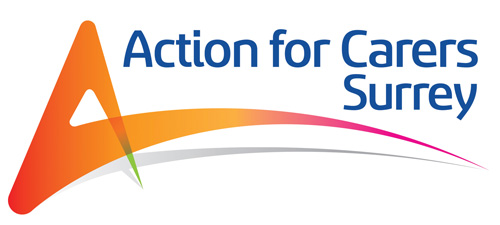
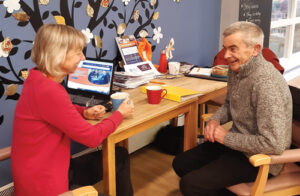 Although it can be rewarding, and deepen relationships, caring can also be extremely hard, and will often affect someone practically, socially, emotionally, and financially.
Although it can be rewarding, and deepen relationships, caring can also be extremely hard, and will often affect someone practically, socially, emotionally, and financially.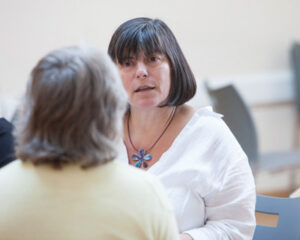 Your employment rights
Your employment rights












